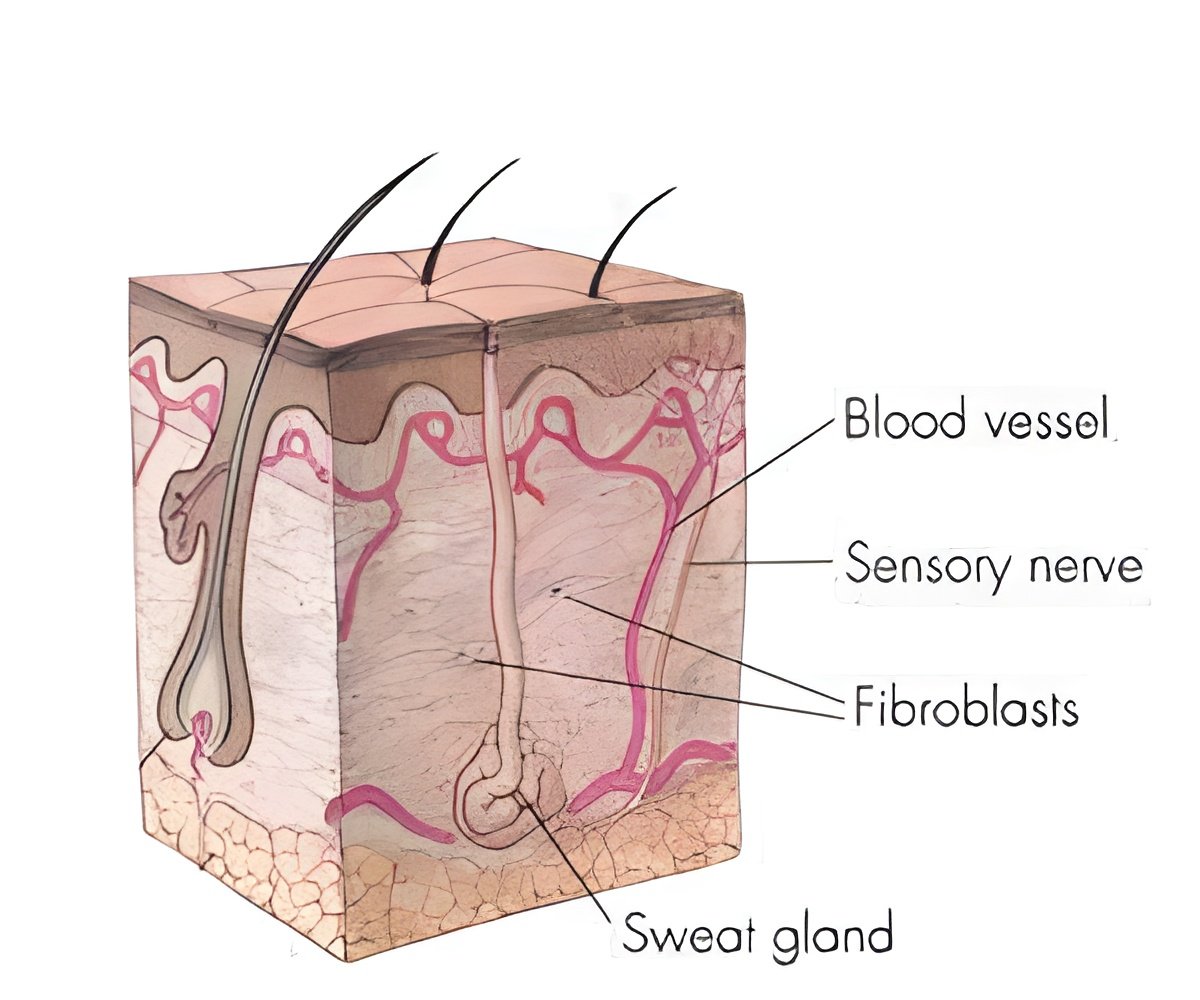The way in which human epidermal progenitor cells control transcription factors has been described by researchers.

Stem cells, of course, are specialized cells capable of endlessly replicating to become any type of cell needed, a process known as differentiation. Progenitor cells are more limited, typically differentiating into a specific type of cell and able to divide only a fixed number of times.
Throughout life, human skin self-renews. Progenitor and stem cells deep in the epidermis constantly produce new skin cells called keratinocytes that gradually rise to the surface where they will be sloughed off. One of the ways that stem and progenitor cells maintain internal health during their lives is through the exosome - a collection of approximately 11 proteins responsible for degrading and recycling different RNA elements, such as messenger RNA that wear out or that contain errors resulting in the translation of dysfunctional proteins which could potentially be deleterious to the cell.
"In short," said George L. Sen, PhD, assistant professor of medicine and cellular and molecular medicine at the University of California, San Diego School of Medicine, "the exosome functions as a surveillance system in cells to regulate the normal turnover of RNAs as well as to destroy RNAs with errors in them."
Sen and colleagues Devendra S. Mistry, PhD, a postdoctoral research fellow, and staff scientist Yifang Chen, MD, PhD, discovered that in the epidermis the exosome functions to target and destroy mRNAs that encode for transcription factors that induce differentiation.
Specifically, they found that the exosome degrades a transcription factor called GRHL3 in epidermal progenitor cells, keeping the latter undifferentiated. Upon receiving differentiation inducing signals, the progenitor cells lose expression of certain subunits of the exosome which leads to higher levels of GRHL3 protein. This increase in GRHL3 levels promotes the differentiation of the progenitor cells.
Advertisement
Sen said the findings could have particular relevance if future research determines that mutations in exosome genes are linked to skin disorders or other diseases.
Advertisement
"This may potentially be due to loss of progenitor cells. Once mutations in exosome complex genes are identified in either skin diseases or other diseases like pontocerebellar hypoplasia, it may be possible to design drugs targeting these defects," he added.
The study appeared in the July 6 issue of Cell Stem Cell.
Source-ANI















